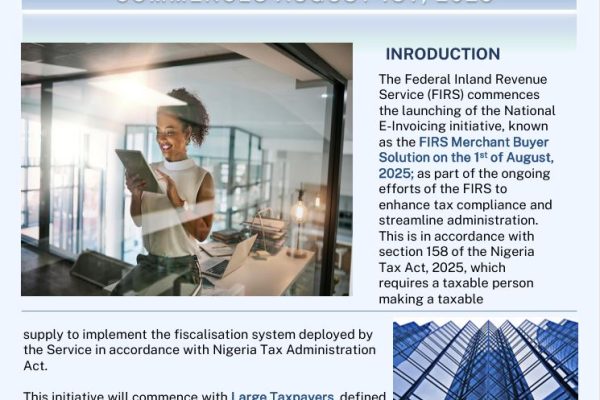IFRS Advisory: What You Need to Know for Effective Compliance
IFRS Advisory: What You Need to Know for Effective Compliance
In today’s increasingly complex financial landscape, navigating the intricacies of International Financial Reporting Standards (IFRS) can be daunting for many organizations. Whether you’re a multinational corporation or a small enterprise, understanding IFRS advisory and consulting compliance is crucial for maintaining accurate financial reporting and staying compliant with global regulations. This comprehensive guide will delve into the essential aspects of IFRS advisory, providing you with the knowledge needed for effective compliance.
What is IFRS Advisory?
IFRS advisory refers to specialized consulting services that help organizations understand and implement the International Financial Reporting Standards. These standards, established by the International Accounting Standards Board (IASB), aim to create a uniform financial reporting framework across different countries. IFRS advisory services offer expert guidance on how to apply these standards correctly, ensuring that financial statements are accurate and compliant.

Why is IFRS Advisory Important?
The importance of IFRS advisory cannot be overstated. Here are some key reasons why:
- Global Consistency: IFRS provides a standardized approach to financial reporting, facilitating comparability across international borders. It helps organizations align their financial statements with these global standards, ensuring consistency and transparency.
- Regulatory Compliance: Adhering to IFRS is often a legal requirement for publicly traded companies and those operating in multiple countries. IFRS advisory services ensure that your organization meets these regulatory obligations, avoiding potential legal issues and penalties.
- Enhanced Financial Reporting: Proper application of IFRS can improve the quality and clarity of financial statements. It assists organizations in presenting their financial performance and position in a manner that is both accurate and understandable to stakeholders.
- Informed Decision-Making: Reliable financial reporting, guided by IFRS, provides valuable insights for decision-makers. Advisory services can help ensure that financial data is presented in a way that supports strategic planning and investment decisions.
Key Components of IFRS Advisory Services
To effectively implement IFRS, organizations typically seek the assistance of advisory firms. These services cover several critical areas:
1. IFRS Implementation
Implementing IFRS involves transitioning from local accounting standards to global ones. IFRS advisory services guide organizations through this transition, helping them understand and apply the new standards. This process often includes:
- Gap Analysis: Identifying differences between existing accounting practices and IFRS requirements.
- Training and Development: Providing education and resources to finance teams to ensure they understand its principles.
- System Adjustments: Modifying financial reporting systems to accommodate IFRS requirements.
2. Financial Statement Preparation
Preparing financial statements in accordance with IFRS requires attention to detail and accuracy. Advisory services assist with:
- Disclosure Requirements: Ensuring that all necessary disclosures are included in financial statements.
- Recognition and Measurement: Guiding organizations on how to recognize and measure assets, liabilities, revenue, and expenses under IFRS.
- Presentation: Helping to present financial information in a clear and compliant manner.
3. Regulatory Compliance
Staying compliant with IFRS involves ongoing monitoring and adaptation to regulatory changes. IFRS advisory services offer:
- Regulatory Updates: Keeping organizations informed about changes in IFRS standards and their implications.
- Audit Support: Assisting with audits by ensuring that financial statements meet IFRS requirements.
- Risk Management: Identifying and mitigating risks related to its compliance.
4. Advisory on Complex Transactions
Certain transactions and accounting issues can be particularly complex under IFRS. Advisory services provide expertise in areas such as:
- Mergers and Acquisitions: Navigating the IFRS implications of business combinations.
- Financial Instruments: Understanding the treatment of financial instruments under IFRS.
- Revenue Recognition: Applying the IFRS 15 standard for revenue from contracts with customers.
How to Choose the Right IFRS Advisory Firm
Selecting the right IFRS advisory firm is crucial for effective compliance. Consider the following factors:
1. Experience and Expertise
Look for firms with a proven track record in IFRS advisory. Experience in your industry and familiarity with the specific standards applicable to your organization are important.
2. Reputation and Credentials
Check the firm’s reputation and credentials. Consider firms that are well-regarded in the industry and have qualified professionals with relevant certifications.
3. Tailored Solutions
Choose a firm that offers tailored solutions to meet your organization’s specific needs. Customization ensures that the advisory services address your unique challenges and requirements.
4. Communication and Support
Effective communication and ongoing support are essential. Ensure that the advisory firm provides clear guidance and is responsive to your needs throughout the compliance process.
Understanding IFRS advisory is essential for effective compliance with global financial reporting standards. By leveraging expert advisory services, organizations can navigate the complexities of it, ensure accurate and transparent financial reporting, and stay compliant with regulatory requirements. Whether you’re implementing IFRS for the first time or seeking to enhance your existing compliance practices, investing in quality IFRS advisory services is a crucial step toward achieving financial excellence.
By focusing on these key areas and selecting a reputable advisory firm, you can position your organization for success in a global financial environment.
Author











